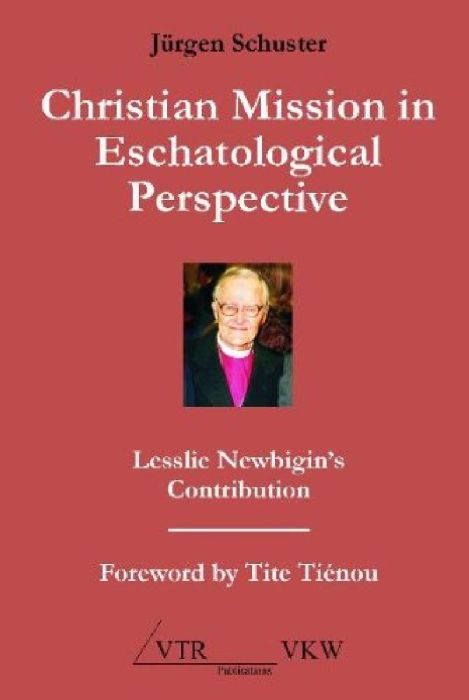Wir verwenden Cookies, um Ihre Erfahrung zu verbessern. Um die neuen Datenschutzrichtlinien zu erfüllen, müssen wir Sie um Ihre Zustimmung für Cookies fragen. Weitere Informationen
Christian Mission in Eschatological Perspektive
Lesslie Newbigin's Contribution
This book examines the implications of Newbigin's understanding of the Kingdom of God for his theology of mission. Newbigin's theological thinking is based on an eschatologically oriented historical understanding of revelation. The gospel tells God's story with his world. In Christ the reign of God has been revealed on earth, yet its final consummation is still to come. …
24,80 €
Eventuell nicht lagernd - wir versuchen schnell zu besorgen
Alle Preise inkl. MwSt.
Artikelnummer:
540682000
EAN/ISBN:
9783938116821
Produktart:
Bücher
Einband:
Paperback
Maße:
14,8 x 21 cm
Umfang:
276 S.
Veröffentlichungsdatum:
12.04.2010
Foreword by Tite Tiénou
This book examines the implications of Newbigin's understanding of the Kingdom of God for his theology of mission. Newbigin's theological thinking is based on an eschatologically oriented historical understanding of revelation. The gospel tells God's story with his world. In Christ the reign of God has been revealed on earth, yet its final consummation is still to come.
Five areas are explored which are affected by this eschatological framework: (1) It provides the reference point for an integrative understanding of mission as witness in both word and deed. (2) The historical character of the revelation makes the gospel part of public truth in contrast to private truth. The gospel is neither a religious way for private salvation nor the establishment of a world immanent theocracy. (3) The church does not constitute the kingdom but is called to be "firstfruits, instrument, and sign" of God's reign. (4) The verification of the truth the church witnesses to occurs only at the end of time. (5) In the meantime the credibility of the biblical tradition can only be advocated provisionally and witnessed to in the religiously pluralistic context the church finds itself in.
Five areas are explored which are affected by this eschatological framework: (1) It provides the reference point for an integrative understanding of mission as witness in both word and deed. (2) The historical character of the revelation makes the gospel part of public truth in contrast to private truth. The gospel is neither a religious way for private salvation nor the establishment of a world immanent theocracy. (3) The church does not constitute the kingdom but is called to be "firstfruits, instrument, and sign" of God's reign. (4) The verification of the truth the church witnesses to occurs only at the end of time. (5) In the meantime the credibility of the biblical tradition can only be advocated provisionally and witnessed to in the religiously pluralistic context the church finds itself in.

